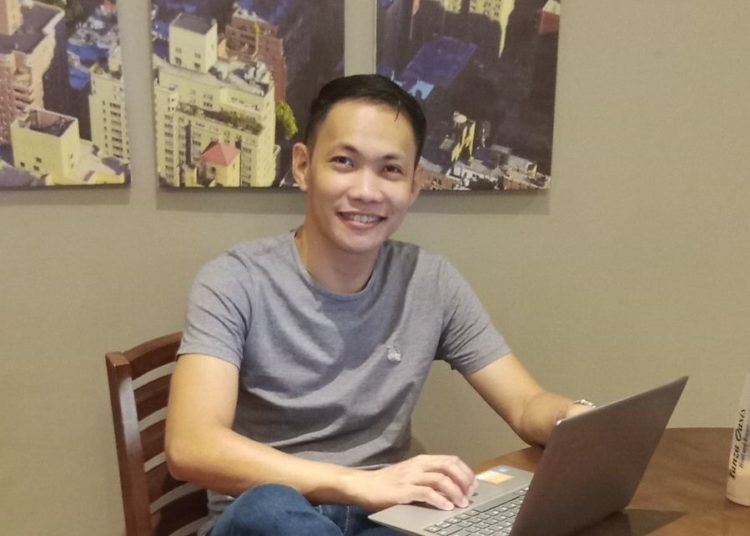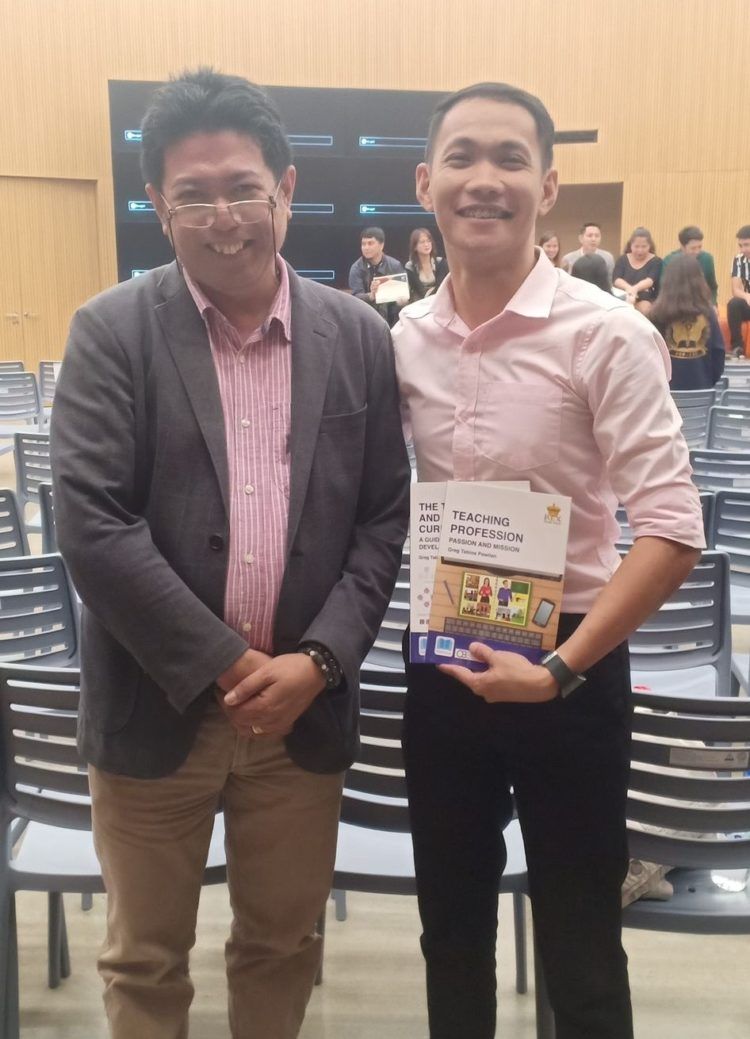Education is… everything #IVLP

Rowel Padernal took me on a trip through which I found out about the education system in the Philippines, about the difficulties people living there face every day, and about his inspiring work. Now I’m glad to share it with you. Ready? Fasten your seat belts. The journey is about to begin!

What steps did you have to take to be in the place you are now?
The fact is, it wasn’t always my dream to become a teacher. Since I remember I wanted to work as a lawyer, but here in my country good law courses are mostly at the private universities, which are really expensive. My dad is a tricycle driver, my mum is a vendor in the market… we simply couldn’t have afforded it. My second choice was teaching. Just after graduating from the Philippine Normal University I started working at a private school. A few years later – in 2012 – there was a change in the educational system. 12 years of basic education became compulsory. When I joined a public school, I was asked to design learning resources for the Filipino learners. Just after that, a big chance heaved into sight – I was invited to be a part of the Bureau of Curriculum Development of the Department of Education. I felt like there’s more I can do in the educational field, I needed to use this opportunity. So here I am, working endlessly. (laugh)
I can imagine it must be a very demanding job. However, you seem to be very happy.
Yes, because it became my great passion! The Philippines is a Third World, developing country. I believe education is not only a social capital in general, but also a key to improve our current situation. The level of poverty here is quite high. And the gap between the rich and the poor is also very visible. But it wasn’t always like that! In the 60s we were one of the first countries in the Southeastern Asia to become educated. Unfortunately, because of the socio-political climate, we eventually fell behind. That’s why I want our youth to be educated, so that they will be able to elect competent political leaders in the future. But first they need to learn how to do it right. They need to be more civic-minded, more enlightened and mature, because in my opinion political immaturity is one of the biggest problems we as a country are facing now. Good leader means safe future for our country.
How do you want to improve the educational system in the Philippines? Do you follow other countries’ cues?
A big challenge is that the Philippines is a very multicultural country. We’ve got 7642 islands and speak about 200 languages… imagine that! It is impossible to implement a particular medium or policy because of the differences between the islands. Keeping that in mind, the learning standards must be contextualized. I’d say it is our guiding principle. You know… one of the biggest problems of the Philippines is that we are good at planning and not so good at enacting. Exactly 9 years ago a new curriculum was implemented and now it is high time we examined its pros and cons. We travel around the country doing studies if this curriculum is enough to satisfy the needs of our inhabitants.

You collaborate with many non-governmental organizations providing basic education in even the most remote places. Is that because the government isn’t really supporting the education system?
There are many fields the government fails in. My country is predominantly young in terms of population. There are around 104 million people, and one-third of it is represented by young and dependent people whose needs are hard to satisfy. That’s why there are many NGOs in the country. One of them realizes a project called “Akyat aklat”. Akyat means to climb and aklat means book – “climb book”. In English it would mean something like “Let the book climb the mountain,” so that people in the hinterlands could also have access to many learning resources. And I must say it really works! Many mountain climbers actually carry with them a few books every time they set forth.
What do you like the most about your job, and what challenges you the most?
One of the challenges in working in the Department of Education is that all these private organizations and universities expect really a lot from us. On the other hand, it can be also treated as a big opportunity. However, there is something that constantly puts a huge pressure on me. Every now and then we’ve been receiving criticism. A lot of it. I guess people accuse us of inefficiency. During my first two years in the Department, it was really toxic and hard to cope with all the expectations. But then I realized the importance of what I was doing and somehow got used to the criticism. I think it’s natural that there will always be someone to criticize us in order to improve the kind of service we provide to the public.
Your country goes through terrible natural disasters every year, such as typhoons and earthquakes, which demolish, among everything else, many schools, depriving students of places to study. How do you handle this problem?
That’s right. There are on average 20 storms per year. Typhoons, earthquakes and volcanic eruptions devastate schools ever and again. We raise funds to help educators with rebuilding their schools and classes. But despite that, the Filipinos are very resilient. We tend to smile all the time, laugh at the misfortune. Overall, we are really happy people, who can even make jokes during the typhoons, when others would probably cry. It is our spirituality. As the song goes… there’s always sunshine after the rain!

Have you ever thought of moving to another country?
Well, I got sometimes job offers in very distant places of the world, but I opted not to move to any other country. I want to serve my homeland and change it for the better. If the majority of the Filipinos in search for a better future left the Philippines, what would happen to this country? There must be someone to stay, and I guess – I’m one of those people.
What are your plans for the nearest future?
I’d really want to become the next chief of the Bureau of Curriculum Development because I see a lot of things that need to be reformed. When it comes to not work-related plans… I do not think of starting my own family very soon. Most of my colleagues are already married and have children, but I opted not to because I feel I need to do a lot more for the Department of Education. I’m devoting my life to it and for now I’m happy with things as they are. I know that proper education is an urgent matter and serving the Filipino people is something I find myself to be happy with.
Rowel Padernal is a Senior Education Program Specialist in the Bureau of Curriculum Development of the Department of Education in the Philippines. He designs learning resources for teachers and carries workshops to enhance instructional competence of educators and leadership potential of the young Filipinos. Privately he is a very avid mountain climber. He already reached four mountains in the Philippines and prepares for the highest pick of the country yet due to his profession he climbs his own mountains every single day.
Photos: Courtesy of Rowel Padernal


